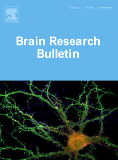
Parkinson’s researcher Caroline Barwood pleaded not guilty to fraud-related charges in a Brisbane courtroom Monday.
According to 9News, Barwood is accused of three counts of fraud, and four instances of attempted fraud, which include trying to obtain approximately $700,000 (AUD) from various organizations between 2011 and 2013 for a study that never occurred. The case follows an investigation at her former institution, the University of Queensland (UQ), which resulted in three of her papers being retracted.
Crown Prosecutor Caroline Marco alleged that Barwood was also intimately involved with Bruce Murdoch, her former colleague at the UQ, who has pleaded guilty to 17-fraud related charges, and received a two-year suspended sentence earlier this year.
Marco also claimed that Barwood admitted that Continue reading Parkinson’s researcher in Australia pleads not guilty to fraud








 As
As